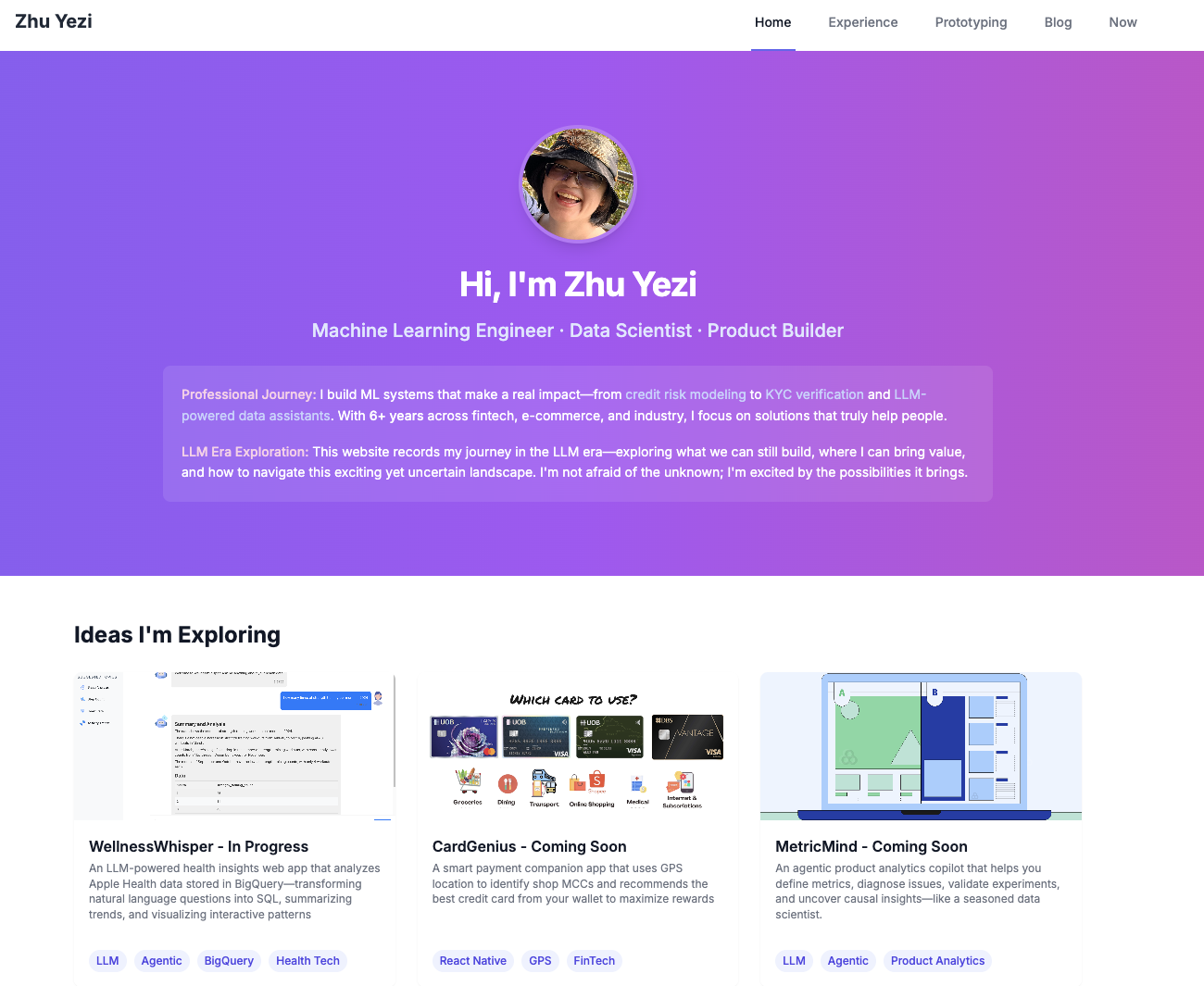Coding with Cursor: My Quick Thoughts on the Future of IT Work
Over the past month, I spent much time coding with Cursor. For example, I built such a portfolio website (zhuyezi.info) in a just 2–3 days — something that would have undoubtedly taken me much longer, requiring a deeper dive into full-stack development, pre-Cursor. You can also follow up my other exploration in this website.

This hands-on experience has really got me thinking about where the tech world is going, especially which jobs will stick around and what new possibilities might pop up.
Vibe Coding: Cool, But Not a Magic Bullet
There's no doubt vibe coding feels like a big step forward. When I knew exactly what I wanted and described it clearly, Cursor nailed it. It was like my ideas just materialized into code, skipping a lot of the usual learning grind for syntax and basic stuff.
But I also ran into walls. If my initial plan for the system or the tech stack I picked was wrong, trying to fix it later was a nightmare. This shows something important: AI can help with writing the code, but the thinking behind it — the "what" and "why" — is still on us.
This also changes what we need to learn. Knowing every single rule of a language might become less crucial, but being able to troubleshot problems, design reliable systems, and really understand the core issue becomes even more important. It's less about rote memorisation and more about having the intuition to see when something isn't right.
Where AI Shines (and Where It Still Needs Help)
From what I've seen, Cursor (and probably other similar AI tools, I used Gemini Code Assistant in daily work) is great for things like building website interfaces and creating backend APIs, especially when you know exactly what goes in, what comes out, and the logic in between (writing API docs first really helps).
However, it struggled with bigger picture stuff like system design, how data moves through systems (ETL), and how to deploy everything. I'm guessing this is because there isn't a ton of high-quality, public information for LLM to learn these complex things well. The know-how of experienced architects and system thinkers is often in their heads, not easily found in books or online courses.
The Future of Tech Jobs: Changing, Not Vanishing
Will AI cause a huge drop in tech salaries? It's a worry many have. If these tools can handle a lot of the coding work, the demand for certain roles might change.
But I don't think AI will take all our jobs. Here's why:
- We're Not at AGI Yet: If AI could truly do anything we asked, that would be AGI, which is a whole different story. Right now, LLM is good at solving problems that already have known solutions.
- New Tech, New Problems: We're constantly inventing new technologies, which create brand new challenges that AI hasn't been trained on. We will be needed to figure these out and build solutions. I saw this firsthand when I had to constantly correct Cursor when it went down the wrong path with something new.
- The Importance of Understanding: AI needs clear instructions. In many industries outside of tech, explaining what you need in a way that an AI understands is tough (I had many such stories in my daily work). We'll need people who can bridge this gap, taking real-world needs and turning them into clear directions for AI.
- Breaking Down Big Problems: Just like data scientists break down complex problems for more well-solved machine learning problem (object detection, entity recognition and so on), we'll need people who can take big, messy problems and break them into smaller, easier pieces for AI to solve.
- Tackling Unsolved Issues: AI tools can help us tackle problems that haven't been solved well before (maybe the dev cost is too much before). This opens up new possibilities and requires human creativity to identify and define these opportunities.
New Possibilities: The Rise of Custom Apps
One thing I'm already seeing is a rise in personalized, small-scale applications. Tools like Cursor make it easier for individuals to build tools that fit their very specific needs. This could lead to a lot more specialized software created by people who really understand the problem, instead of relying on big, general-purpose programs.

A Question to Ponder
One last thought that keeps popping into my head: who will be the one to "open Pandora's Box" and start putting ads into these powerful AI models? It could change everything, but there are also some serious ethical questions there.